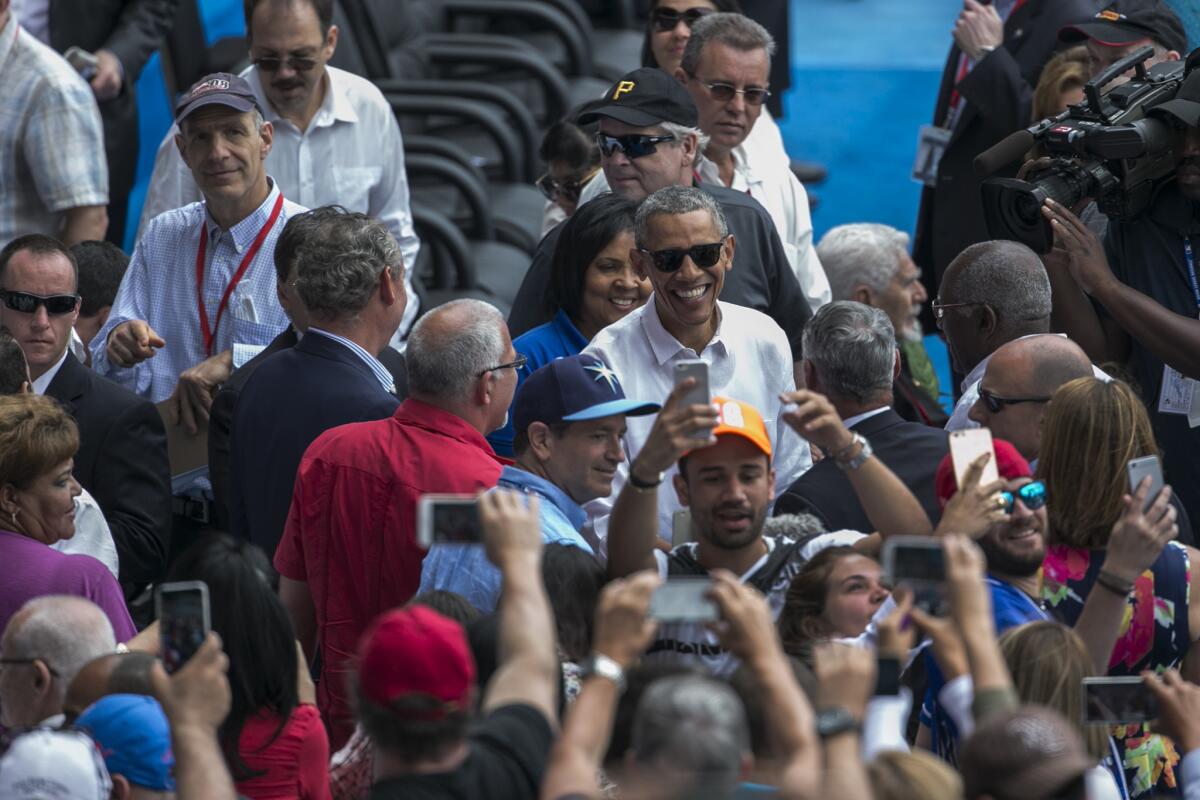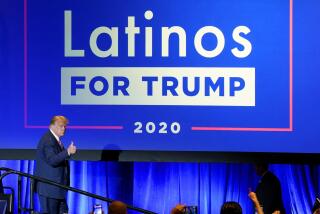Opinion: End of preferential treatment for Cuban migrants was long overdue

President Obama’s decision to end a half-century of special treatment for Cuban émigrés is bad news for those seeking a new life outside the reach of the Castro regime, but nonetheless long overdue.
Conceived in the early years of the decades-long political estrangement between the U.S. and Cuba, the policy was meant to give a safe harbor to those fleeing persecution under Fidel Castro. No evidence of individual danger was ever required. Cubans who arrived in the U.S. and passed an inspection generally were given permission to stay, even as asylum-seekers from other countries were required to make the case in immigration court that they had a specified risk of persecution if returned to their home country.
The policy was both political and humanitarian. Granting a haven to those fleeing communism invited defections, and embarrassed the Cuban government. The exodus began primarily by air after the 1959 revolution, but it became more dangerous when Castro ended flights to the U.S. in 1962. Refugees resorted to boats across the 90 miles of ocean between the island nation and Florida.
Congress in 1966 enacted the Cuban Adjustment Act, which gave sanctuary to Cubans who couldn’t return home for political reasons (repatriated defectors often were punished).
But Castro often used the U.S. policy to his own advantage. Faced with housing and job shortages, Castro announced in 1980 that any Cuban who wished to leave for the U.S. could do so from the port of Mariel. A flotilla of 1,700 boats eventually ferried 125,000 Cubans north, a number of them criminals and patients released from mental institutions, before the U.S. and Cuba negotiated an end to the departures.
But that didn’t end the exodus. By the mid-1990s, the steady flow by sea — and deaths from sinking vessels — led to the “wet foot-dry foot” policy under which any Cuban who made it to land could stay in the U.S., but any caught at sea would be returned to Cuba under a Castro promise that there would be no government retaliation.
Over time, the flow of political dissidents and those simply fleeing communism on principle gave way to the current wave of economic migrants who still received preferential treatment and were allowed to stay as legal residents.
It took the Obama administration some time to get here, though — a delay that likely let that spike in recent arrivals occur.
Since Obama and Cuban President Raul Castro announced a diplomatic thaw, the number of Cubans showing up at the U.S. border has spiked — likely driven by fears that the U.S., without Cuba as an enemy, would end the special consideration. There are now more than 1.1 million Cuban immigrants in the U.S.
As The Times editorial board noted two years ago, “much like the trade embargo and other U.S. sanctions against Cuba, this special consideration has outlived whatever usefulness it might have had 50 years ago. The U.S. should treat Cubans no differently than it does potential immigrants from the rest of the world.”
It took the Obama administration some time to get here, though — a delay that likely let that spike in recent arrivals occur. It’s a step he should have taken at the same time he and Raul Castro announced the restoration of diplomatic relations. And Congress should follow suit and end its senseless boycott.
Of course, whether the change in immigration policy lasts depends on what the incoming Trump administration will do. President-elect Donald J. Trump, with his transactional view of international relations, threatened after Fidel Castro died in November to put the “cold” back in Cold War if Cuba didn’t agree to human rights improvements. It’s an open question, though, how seriously Trump takes human rights, given his admiration for Russian President Vladimir Putin and his endorsement of torture.
Still, Trump should leave the new policy in place and urge Congress to end the embargo. Sealing off Cuba has done nothing except hurt the Cuban people, and Obama is right in believing that a more efficient way of fomenting change in other nations is through political and economic engagement.
Whatever geopolitical justification the U.S. might have had for giving Cuban immigrants special consideration no longer exists, and to treat them differently from those fleeing persecution in other nations of the world makes for an uneven, and unfair, policy.
Follow my posts and re-tweets at @smartelle on Twitter
More to Read
A cure for the common opinion
Get thought-provoking perspectives with our weekly newsletter.
You may occasionally receive promotional content from the Los Angeles Times.







